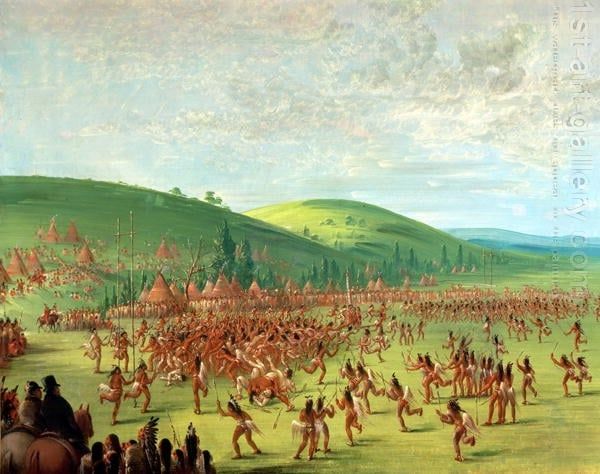Welcome to the 19th Century blog! In this article, we delve into the fascinating world of the British colonies during the 19th century. Join us as we explore the triumphs, challenges, and impact of these colonies within the context of global history. Get ready to uncover the untold stories of this influential era.
Exploring the Impact of British Colonies in the 19th Century: A Historical Perspective
Exploring the Impact of British Colonies in the 19th Century: A Historical Perspective
The 19th century marked the height of British colonialism, as the British Empire expanded its territories across the globe. This period had a profound impact on both the colonizers and the colonized, shaping political, economic, and social landscapes.
One of the most significant impacts of British colonies was the spread of British culture, language, and legal systems. English became the lingua franca in many regions, facilitating communication and trade. This, in turn, expanded the influence of British values and ideals, leaving a lasting legacy in those areas to this day.
The establishment of British colonies also brought about transformative changes in local economies. Colonial powers exploited the resources of these regions, leading to the growth of industries such as mining, agriculture, and manufacturing. The abundance of raw materials fueled the Industrial Revolution in Britain, which further consolidated its economic dominance.
Furthermore, the British Empire played a pivotal role in shaping the political landscape of the 19th century. Through their colonies, the British exerted control over strategic ports and trade routes, bolstering their global power. They also introduced Western-style governance systems, such as parliamentary democracy, which influenced the development of political institutions in their colonies.
However, it is important to acknowledge the negative consequences of British colonialism. Exploitative labor practices, land dispossession, and cultural assimilation were all prevalent during this period. The effects of these actions continue to be felt by many communities even today.
The impact of British colonies in the 19th century cannot be understated. It left an indelible mark on the world, influencing language, economies, and the political order. Acknowledging both the positive and negative legacies of this era is crucial for a comprehensive understanding of its historical significance.
The American Experiment: Can a Multi-Racial Society Actually Survive? | Victor Davis Hanson
1879: The Bloodiest Battles Of The Anglo-Zulu War | History Of Warfare | Timeline
What were the reasons behind England’s acquisition of numerous colonies during the 19th century?
During the 19th century, England acquired numerous colonies for several reasons.
One of the main motivations behind England’s colonial expansion was economic gain. The Industrial Revolution in Britain created a high demand for raw materials, such as cotton, tea, rubber, and minerals, which could be sourced from the colonies. Additionally, these colonies provided new markets where British manufactured goods could be sold, resulting in increased profits for British merchants and industries.
Strategic considerations also played a significant role in England’s acquisition of colonies. Having colonies around the world served as naval bases, allowing Britain to project its military power and maintain control over key trade routes. This helped to safeguard British interests and ensure the security of their empire.
The competition with other European powers also fueled England’s desire for colonies. The 19th century saw intense rivalry among European nations to establish colonial dominance. England sought to expand its empire in order to compete with countries like France, Germany, and Belgium, who were rapidly acquiring colonies themselves.
Additionally, there were ideological motivations behind England’s colonial expansion. The British believed in their cultural superiority and saw it as their duty to civilize and educate the indigenous populations in their colonies. This mindset of “white man’s burden” drove the British imperialistic ideals during this era.
England’s acquisition of numerous colonies during the 19th century was driven by economic aims, strategic considerations, competition with other European powers, and ideological beliefs of cultural superiority and mission civilisatrice.
What was the 19th century name for the British Empire?
The 19th century name for the British Empire was often referred to as the “British Empire.” However, during that time, it was also known as the “Victorian era British Empire” or simply as the “Victorian Empire.” The term “Victorian” is derived from Queen Victoria, who reigned over the British Empire from 1837 to 1901. The Victorian era marked a period of significant expansion and dominance for the British Empire, and it encompassed various territories across the globe, making it one of the largest empires in history.
What were the three British colonies?
In the 19th century, Britain had several colonies around the world. However, if we focus on British colonies during this time, the three most significant ones were India, Australia, and Canada.
India was known as the “Jewel in the Crown” of the British Empire. It was under British rule from the late 18th century until India gained independence in 1947. The British East India Company initially established trading posts in India, but eventually took control of the entire region. British colonial rule had a profound impact on Indian society, politics, and economy.
Australia was originally used by Britain as a penal colony, where convicted criminals were sent as punishment. However, over time, free settlers arrived, and Australia became a prosperous and growing colony. In 1901, Australia federated to become a self-governing dominion within the British Empire. British influence can still be seen in Australia’s political and legal systems.
Canada was also a significant British colony during the 19th century. It was initially settled by French and British colonists, but after the Seven Years’ War, Britain gained control of Canada from France. The British North America Act of 1867 established the Dominion of Canada, granting it self-government while remaining part of the British Empire. Canada continued to expand westward throughout the 19th century, with the completion of the Canadian Pacific Railway being a notable milestone.
These three colonies played crucial roles in shaping British imperialism in the 19th century and had long-lasting effects on their respective regions.
What defined colonization in the 19th century?
Colonization in the 19th century was characterized by a combination of political, economic, and social factors that drove European powers to establish colonies in various parts of the world. These factors can be summarized as follows:
1. Economic motives: The Industrial Revolution led to a need for raw materials and new markets for European manufactured goods. Colonies provided access to valuable resources such as minerals, timber, and agricultural products, which fueled the economic growth of the colonizing countries.
2. Political ambitions: European powers sought to expand their political influence and secure strategic locations around the globe. Colonies served as military bases and naval stations, enabling European nations to project power and protect their trade routes.
3. Technological advancements: The development of steamships, railways, and telegraph lines facilitated long-distance travel, communication, and administration, making it easier for colonial powers to establish and maintain control over distant territories.
4. Scientific and intellectual justifications: European colonial powers believed in the concept of racial superiority and viewed colonization as a means of spreading their civilization, culture, religion, and values to “less developed” societies. This ethnocentric mindset justified the establishment of colonies as a civilizing mission.
5. Social and demographic factors: Rapid population growth, urbanization, and changing social dynamics in Europe created pressures for emigration. Many Europeans saw colonization as an opportunity for adventure, social mobility, and economic improvement.
6. Competition among European powers: As Europe entered the era of imperialism, there was intense rivalry between nations to acquire colonies and expand their spheres of influence. This competition often led to conflicts, both among European powers and with indigenous peoples resisting colonization.
Overall, colonization in the 19th century was primarily driven by economic interests, geopolitical ambitions, technological advancements, cultural beliefs, migration pressures, and geopolitical rivalries. These factors combined to create an era of intense colonial expansion and domination by European powers over large parts of Africa, Asia, and the Americas.
Frequently Asked Questions
What were the major motivations behind British colonial expansion in the 19th century?
British colonial expansion in the 19th century was driven by several major motivations:
1. Economic interests: Britain sought to establish colonies to secure valuable natural resources, expand trade networks, and establish new markets for British goods. The Industrial Revolution had increased Britain’s appetite for raw materials, such as cotton and rubber, which could be obtained from colonies.
2. Strategic considerations: The British Empire sought to maintain its global dominance and secure key strategic locations. Establishing colonies provided naval bases and coaling stations, which were crucial for maintaining and protecting Britain’s vast maritime empire.
3. Political power: British colonial expansion was also driven by a desire to spread British influence and values across the world. The empire was seen as a symbol of national prestige and power, and establishing colonies allowed Britain to exert political control and extend its sphere of influence.
4. Missionary zeal and cultural superiority: Many Britons believed it was their duty to spread Christianity and “civilize” indigenous populations. Missionaries played a significant role in colonial expansion, often working hand in hand with the colonial administration. This belief in cultural superiority and the desire to “uplift” societies were important motivations behind British colonization.
5. Competition with other European powers: The 19th century was an era of intense imperial rivalry between European powers. Britain sought to expand its colonial holdings to counter the influence of other European nations, such as France and Germany. This competition for colonies was driven by the belief that colonies were essential for an empire’s economic and military strength.
Overall, these motivations combined to drive British colonial expansion in the 19th century, shaping the course of history and leaving a lasting impact on the countries and peoples affected by British imperialism.
How did British colonial policies and practices impact the indigenous populations of the colonies during the 19th century?
During the 19th century, British colonial policies and practices had a significant impact on indigenous populations in the colonies. The British Empire implemented policies aimed at expanding their economic and political control over indigenous lands and resources. These policies were often characterized by the dispossession of indigenous peoples from their traditional territories and the exploitation of their natural resources.
One major aspect of British colonial policies was land acquisition. The British government enacted laws and treaties that allowed them to take over indigenous lands for European settlement and economic development. This led to the displacement and marginalization of indigenous communities, as they were forced to move to less desirable areas or into reservations.
Additionally, British colonial practices often disrupted traditional indigenous economies and social structures. The introduction of cash-crop agriculture and western-style industries undermined indigenous subsistence economies and led to increased dependency on colonial powers. Indigenous communities were often coerced into producing cash crops for export, which further eroded their self-sufficiency and cultural practices.
The British also imposed their legal and administrative systems on indigenous populations, often disregarding indigenous customs, laws, and governance structures. This resulted in the loss of autonomy for indigenous communities, as British officials and laws superseded their traditional systems of governance.
Furthermore, British colonial policies had detrimental effects on indigenous cultures and identities. Indigenous languages, religions, and cultural practices were suppressed or marginalized in favor of British cultural norms. Missionary activities often aimed to convert indigenous populations to Christianity, leading to the erosion of traditional belief systems.
Overall, British colonial policies and practices had a profound and negative impact on indigenous populations during the 19th century. Their pursuit of economic and political interests often disregarded the rights and well-being of indigenous peoples, leading to displacement, loss of autonomy, economic exploitation, and cultural suppression. These legacies continue to shape the lives and realities of indigenous communities in former British colonies today.
What were the key events and factors that led to the decline of British colonial influence in the 19th century?
There were several key events and factors that led to the decline of British colonial influence in the 19th century:
1. Rise of nationalist movements: Throughout the 19th century, nationalist movements gained momentum in many British colonies. Influenced by ideas of self-governance and independence, these movements challenged British rule and demanded greater autonomy.
2. Economic changes: Industrialization and the growth of global trade led to the emergence of new economic powers, such as the United States and Germany. This shifted the balance of economic power away from Britain and undermined its colonial dominance.
3. Competition from other European powers: Other European powers, particularly France and Germany, also expanded their colonial empires in the 19th century. This heightened competition for territory and resources, diminishing Britain’s relative influence.
4. Imperial overstretch: The vastness of the British Empire and the extent of its colonial holdings stretched its military and administrative capacities. Maintaining control over far-flung territories became increasingly challenging and costly.
5. Anti-slavery movement: The abolitionist movement gained traction in the 19th century, leading to the emancipation of millions of enslaved people across the British colonies. This movement challenged the legitimacy of colonial rule and fueled tensions between colonial powers and local populations.
6. Decolonization movements: In the late 19th century, waves of decolonization swept through various parts of the world. These movements, fueled by nationalistic aspirations, sought to dismantle colonial systems and establish independent nation-states.
7. World Wars: The two World Wars in the first half of the 20th century accelerated the decline of British colonial influence. Both wars strained British resources and weakened its position as a global power, ultimately leading to the dismantling of the British Empire.
Overall, a combination of socio-political changes, economic shifts, and global events contributed to the decline of British colonial influence in the 19th century.
The British colonies in the 19th century played a significant role in shaping world history. The empire’s expansion and influence extended far beyond its own borders, spreading its language, culture, and values to every corner of the globe.
The economic benefits derived from these colonies were immense, as they provided valuable resources and markets for British goods. Industries such as textiles, mining, and agriculture flourished due to the availability of raw materials and cheap labor in the colonies.
However, this period also witnessed tremendous social and political challenges within the colonies. Movements for independence and self-governance emerged as colonial subjects sought to assert their rights and break free from British rule. Notable figures like Mahatma Gandhi and Nelson Mandela led these movements, leaving a lasting impact on their respective nations and the world at large.
Moreover, the British Empire exhibited stark inequalities and injustices, particularly in regards to race and class. The exploitation of indigenous peoples, the enslavement of Africans, and the implementation of discriminatory policies all tarnished the legacy of the empire.
Yet, it is important to recognize that the British colonies in the 19th century also experienced advancements in infrastructure, education, and governance. Railways, telegraphs, and modern forms of communication helped connect these far-flung territories, while the establishment of universities and legal systems laid the foundations for future development.
Overall, the story of the British colonies in the 19th century is one of both triumph and turmoil. It serves as a reminder of the complexities and consequences of imperialism, but also highlights the resilience and agency of those who fought for their freedom. Understanding this period is crucial in comprehending the global dynamics and legacies that continue to shape our world today.





